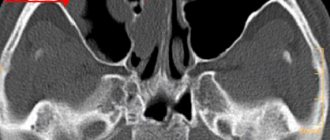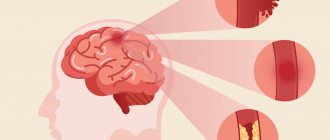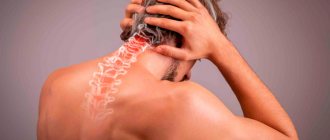A headache can not only distract you from your usual activities. She is capable of exhausting every day, turning life into gray everyday life. What if you have a headache every day? What reasons can cause it? How to behave correctly in such a situation?
Headache is a common problem. It can vary in intensity and can be caused by different reasons, both harmless and quite serious. In any case, this is the result of a violation of normal blood circulation in the brain.
Sufficient blood flow is the key to proper brain function; it maintains the viability of neurons, supplies them with oxygen, nutrients, and energy. Headache can be a symptom of oxygen deprivation. Sometimes it’s enough just to get a good night’s sleep or rest for the condition to return to normal.
Headaches every day can be caused, among other reasons, by strokes and tumors. In this case, regular pills will not relieve pain.
Headache can be acute or persistent. There are cases when it does not stop for weeks or even months.
Chronic cases
Let's figure out what causes headaches every day. If such a condition is observed constantly, from morning to evening, such cases are called chronic. Severe headaches every day can be triggered by lifestyle, environment, or work. Such pain is not a symptom of another disease, but an independent manifestation.
Chronic pain can last up to 180 days. In such cases, a doctor should help you find out why you have a headache every day. He will take a detailed history and prescribe tests, including an MRI.
Diagnostic methods
If a person feels dizzy and has a headache every day, it is necessary to undergo a thorough examination to determine the causes of this condition. For this purpose, the following studies are used:
- ECG (to rule out or confirm heart problems). This procedure must be done if the patient has symptoms of hypertension.
- MRI or computed tomography. These studies will make it possible to obtain complete information about the state of the brain and determine the cause of the development of the pathological condition.
- Electroencephalogram.
- Dopplerography of blood vessels.
- Ultrasound.
- Complete blood count, urine test for the presence and amount of cholesterol in the body.
As for specialists, you may have to consult with the following doctors: neurosurgeon, psychiatrist, neurologist, traumatologist, ophthalmologist.
Causes
If you have a headache almost every day, the main reasons are as follows:
- TBI;
- atherosclerosis;
- hypertension;
- intoxication;
- diabetes;
- osteochondrosis;
- hormone imbalance;
- oncology.
Headaches every day for various reasons are a reason to consult a doctor.
If you don’t find out the exact cause and just numb the pain with another pill, it will come back again.
Nape area
If the back of the head is bothering you, the reasons may be:
- Increased blood pressure. Hypertension is a very common cause. Sometimes it is enough to achieve a steady decrease in pressure to forget about the pain.
- Neuralgia of the occipital nerves. These peripheral nerves can cause persistent pain in the back of the head.
- Pathologies of the cervical spine. Daily headaches can be a symptom of osteochondrosis, compression, or pinched nerve. Also, such unpleasant sensations can appear after a long static load on the neck.
Whiskey
In the temple area, pain may appear after severe psycho-emotional stress. It may also indicate a migraine. The temples can hurt both at once, or separately on the left or right. Other reasons:
- mental stress;
- stress;
- changes in atmospheric pressure.
With migraines, severe headaches are often accompanied by nausea and vomiting. The pain may throb on the right or left side.
When faced with such a problem, many solve it very simply - buy a painkiller. There are a lot of such products sold in pharmacies. They are sold without a prescription, and numerous commercials constantly advise you to buy another miracle drug.
If painkillers do not help, there is reason to be wary and consult a doctor. By the way, uncontrolled use of medications can also cause pain. More often it appears in the temple area, and in medicine it is called abuse.
Forehead
Frontal headaches are very common. It often affects people whose activities involve constant mental work. It can also be triggered by sitting for a long time at a computer, desk, or even communicating with people for a long time. Often this problem is provoked by visual tension or high intraocular pressure.
Programmers, office workers, and managers often turn to neurologists.
Doctors emphasize that the cause of everyday headaches can be:
- toxic poisoning;
- neoplasms in the brain;
- infectious diseases;
- vascular diseases;
- mental pathologies.
Features of the manifestation of headaches in certain pathologies
Daily headaches can drive the most mentally and emotionally stable person into depression. It is not even worth mentioning that the ability to work in this case is greatly reduced. Therefore, it is necessary to immediately find out the causes of this pathological condition and begin therapy.
It is advisable to know exactly how a headache manifests itself in a particular disease, as well as what additional symptoms may be:
- Hypertension. With increased pressure, the head may often hurt in the back of the head. In this case, the unpleasant sensations can be very strong and last the whole day. Periodically, the pain subsides, but does not go away completely. In this case, the pressure should be measured, and if it is high, then appropriate therapeutic measures should be taken.
- Diseases of the adrenal glands. In this case, not only a headache is felt, but there may also be other symptoms: intense sweating, fever, vomiting and nausea. The pain syndrome is bursting and localized in the back of the head. Often the head hurts in the morning after sleep, and this condition can continue all day. In this case, hormonal therapy may be effective.
Chiropractor Epifanov Anton talks about headaches caused by pathologies of the spine and a sedentary lifestyle:
- Osteochondrosis. Here not only your head will hurt, but also your neck area. In addition, the patient quickly gets tired, his level of concentration decreases, and insomnia appears. And my head often feels dizzy. This disease needs to be dealt with as soon as possible. Otherwise, the vessels going to the brain will be pinched, and the blood will flow poorly - feeding the brain tissue, and, therefore, its activity will deteriorate.
- Diabetes. In this case, the head may hurt constantly. In this case, the patient may not have problems with blood vessels or other diseases listed above.
- Atherosclerosis. The presented pathology is characterized by the fact that cholesterol plaques are deposited on the walls of large vessels, which prevent blood from passing freely through them. At the same time, your head may not only hurt, but also feel dizzy. In addition, the patient has other symptoms: decreased performance, disturbed sleep, and memory deterioration. The headache occurs at any time of the day.
Read about how to relieve headaches.
- If your head hurts every day, it may be a consequence of an injury, both recent and old. Even the most “harmless” bruise can cause enormous harm to health. For example, if at first the headache only lasts for a few minutes, then over time the pain syndrome will become chronic. With a concussion, the head usually feels dizzy, nausea and vomiting. The patient may have difficulty navigating in space.
- Chronic fatigue syndrome. It arises due to the inability to rationally distribute work and rest time. This is facilitated by the rapid pace of modern life. It should be noted that you can make such a diagnosis yourself if the person cannot find other reasons for the pain syndrome. However, it is better not to do this.
These diseases should be taken very seriously. Each of them can cause a lot of pain and complications.
What to do
How should one proceed in such cases? It is important to understand that headaches and the reasons that cause them can be different. In most cases, especially if painkillers do not help, it would not be superfluous to consult a neurologist. Often it is he who is able to make an accurate diagnosis and identify a specific cause. This is the main condition for successful and quick treatment.
Let's consider the main diseases and pathological conditions that can accompany headaches.
Hypertension
A fifth of the population has high blood pressure. Hypertension is fraught with vascular atrophy and ischemic stroke, therefore such patients must measure blood pressure every day and, if necessary, reduce it with special medications. They are selected by the doctor individually in each case.
Headache appears if blood pressure exceeds normal pressure levels by 25%. When the pressure stabilizes, it goes away, but in rare cases it can remain for the whole day. In this case, it is worth excluding pathology of the adrenal glands (pheochromocytoma). In this case, the headache will be bilateral, bursting, it often appears in the morning and is localized in the back of the head. Such attacks are quite short (up to 15 minutes).
If you experience frequent headaches that are accompanied by sweating, nausea, tremors, and facial skin flushing, it is worth checking the state of the endocrine system.
In hypertensive patients, pain may occur when sitting for a long time. It is contraindicated for them to stay at the computer for a long time, as the pressure can jump sharply. In this case, not only the hemispheres of the brain suffer, but also the retina of the eyes, the heart, and chondrosis develops over time.
With osteochondrosis of the cervical spine, the condition worsens further because the destruction of brain cells begins. This leads to rapid fatigue, decreased concentration, sleep disturbances, and dizziness. In such cases, in addition to medication treatment, it is recommended to rest more and develop a daily routine.
Well, if high blood pressure is accompanied by fever, cough, chills, or sore throat, this may be a symptom of the flu, ARVI.
Diabetes
With this disease, blood vessels are affected, which disrupts blood circulation and affects all organs and systems of the body. Diabetics may experience headaches as sharp blows, persistent and long-lasting.
If a diabetic has increased blood pressure, he should take the medicine prescribed by the endocrinologist.
Atherosclerosis
With atherosclerosis, cholesterol is deposited on the walls of all arteries. In this case, blood circulation in the vessels of the brain is disrupted, and pathological changes become chronic. The lumens of the arteries quickly narrow, which causes oxygen starvation of the brain. In this case, hypertension may also appear, which will be constantly accompanied by attacks of headache.
Other signs of atherosclerosis: insomnia, memory impairment, irritability, decreased performance. The pain is localized in a separate area and is observed more often in the morning or evening. It may be accompanied by a feeling of a heavy head.
With this pathogenesis, qualified medical assistance is required. Only he will be able to select an effective systemic treatment. It can be supplemented with feasible physical activity, walking outside more often, and resting more.
Hormonal imbalance
Women suffer from it more often (menopause, pregnancy, PMS, hormonal fluctuations in adolescents). Their hormone levels are very unstable and can change. With hormonal disorders, the legs and face may swell, periods become painful, the woman loses or gains weight, she feels nauseous, acne appears, stretch marks on the chest, abdomen, and constipation. With such symptoms, a thorough comprehensive examination is required.
The headache is especially severe during the so-called menopause, when the production of sex hormones gradually stops. If a woman during menopause ignores such symptoms, she may face serious problems, including cancer.
TBI
Traumatic brain injury can cause frequent headaches in the future. Even with a mild TBI, it is still worth seeing a doctor, because it can mark the beginning of regular discomfort.
TBI can be of different types:
- injury;
- concussion;
- compression of the brain.
When a bruise occurs, the tissues swell and a hematoma appears. After one hour or several hours, the pain goes away and no longer bothers you. When a concussion occurs, the pain may persist for several days; when moving, it becomes stronger, dizziness, nausea, weakness, and ringing in the ears may appear. With a severe concussion, the limbs can be paralyzed and speech is impaired.
If a person loses consciousness, this may indicate compression of the brain caused by bleeding from a TBI.
Fatigue
Oddly enough, fatigue can also lead to persistent headaches. A therapist can help in this situation. Most likely, the cause was stress, overwork, and inability to alternate work and rest. It is enough to stop overworking, giving in to stress, and being nervous for your condition to improve.
If no pathologies are identified, simple rules can help return the body to tone:
- While working, take regular deep breaths (several). This is a great way to oxygenate your blood.
- Try to keep your back straight, this will relieve the shoulder area.
- Learn to relax in the evenings, forgetting about problems at work.
- Watch less TV, and rather take a walk in the fresh air.
- To sleep better, take a bath, then you are guaranteed a restful night and deep sleep.
Stress
A person cannot avoid stress at all. One way or another, he is constantly lying in wait for us. A little stress, oddly enough, is even beneficial for the body. They keep our neural connections in good shape, force us to think about every situation and try to avoid annoying mistakes. But constant stressful situations are dangerous for the body. They provoke excessive production of adrenaline, exhaust all energy, lead to disruption of sleep, cardiovascular activity, etc.
Overexertion of stress can cause persistent headaches. It may be preceded by muscle tension, breathing problems, etc. Psychologists advise avoiding unpleasant conversations that can lead to such a negative reaction. This doesn’t always work out, because stress happens not only at work, but also in the family. Here it is important to understand for yourself what is more important: to prove that you are right or to preserve your health and the well-being of those close to you.
It is stress in the family that is considered the most difficult. They can lead to completely unexpected negative consequences. After talking in a raised voice with loved ones, a person can get a stroke or heart attack, so a headache is not the worst option. Psychologists advise avoiding a showdown, leaving the room for a while, being distracted by something pleasant, or just drinking a cup of water. This will dilute the cocktail of hormones and adrenaline in your blood and reduce the degree of tension.
Eye strain
This problem is often faced by people with mental work or those who are forced to constantly work at the computer. But even incorrectly selected glasses or watching 3D movies can cause such pain. The thing is that excessive eye strain affects the eye muscles, leading to painful sensations.
Sleep disorders
Lack of sleep is extremely harmful to the body. Good sleep helps restore strength and relieve mental stress. You should not work or do household chores until late at night. Try to stick to a reasonable routine. Sleep should take at least six hours, and preferably eight.
Long-term use of certain medications
We have already mentioned that frequent use of painkillers can lead to the opposite effect - they will provoke headache attacks. Such attacks can last up to two weeks, and after the patient takes the next portion of the analgesic, it intensifies.
For the unpleasant sensations to go away, it is enough to simply stop taking the analgesic with which the body is fed up. Sometimes doctors may also prescribe a course of antidepressants.
Obesity
Excessive weight can cause a whole range of diseases. One of the symptoms of an onset of illness may be a headache.
Pathological causes
But during the day you may want to sleep not only because of a violation of the rest regime. According to Tatyana Surnenkova, drowsiness can occur due to pathological changes in the body.
— Obstructive sleep apnea syndrome. Characteristic for people with excess body weight. With this disease, the soft tissues of the oropharynx relax and block the airways during sleep. A person nearby may notice that their loved one’s habitual snoring suddenly stops for a few seconds and then resumes with loud snoring. During these seconds the person is not breathing, and the number of such episodes of “breath holding” can reach 400-500 per night. Apnea is a dangerous condition, as it disrupts not only sleep, making it superficial, not allowing the body to rest. The disease disrupts the supply of oxygen to the brain, causes attacks of suffocation, and over time leads to an increase in intra-abdominal pressure and the development of diseases of the digestive and respiratory systems.
- Restless legs syndrome. It is manifested by the inability to “lay” the legs, to find a comfortable position for them, and by unpleasant, painful sensations in the legs. Symptoms appear only at night, but as soon as you stand up and take a few steps, they go away without a trace. Because of this, the patient has to repeatedly get out of bed at night, walk, and stretch his feet. There is no time left for proper sleep.
- Narcolepsy. A serious neurological disorder, the occurrence of which is associated with a deficiency in the brain of the neurotransmitter orexin, which is responsible for wakefulness. At night, a person cannot sleep, he is tormented by hallucinations, during periods of half-sleep he experiences muscle paralysis, the inability to move either an arm or a leg. During the day, people suffering from narcolepsy frighten others with mood swings, often falling into causeless anger, which is quickly replaced by joy or surprise.
Nocturnal epilepsy. In this disease, excess brain activity occurs at night, which disrupts the quality of sleep. The patient often wakes up, can walk or talk half asleep, and symptoms characteristic of epileptic disorders occur mainly at night: convulsions, muscle contractions, arching of the body.
Depression. One of the common reasons why you want to sleep during the day is especially common among teenagers. Depression can occur against the background of chronic stress caused by worries and nervous tension. In this condition, the level of the hormone cortisol in the body is constantly elevated, which leads to general poor health. Brain activity increases at night, and the functioning of the internal “biological clock” changes. I suffer from insomnia at night, and then I want to sleep all day. Manifestations of depression intensify in autumn and winter, against the background of a lack of sunlight. The level of the joy hormone serotonin in the body decreases, but the concentration of the hormone melatonin, which is responsible for sleep and inhibition of reactions, on the contrary, increases.
pixabay.com/
The most dangerous diseases
Among the most dangerous diseases that are accompanied by pain in the head are meningitis, glaucoma, and cancer.
Meningitis
With meningitis, the membranes of the spinal cord and brain become inflamed. If not treated immediately, death may occur. Brain swelling begins, intracranial pressure increases, and pain receptors are intensely irritated.
A sure symptom of meningitis is a bursting and very severe headache, the location of which is difficult to determine. It is accompanied by high skin sensitivity, nausea, and vomiting. Even patients who are in a coma may feel severe pain when the doctor touches their scalp.
Glaucoma
With glaucoma, the optic nerve is affected, not only pain in the head appears, but also general weakness and nausea. It is important to consult a doctor at the first symptoms, because glaucoma leads to irreversible blindness.
Cancer
When you have brain cancer, headaches are a must. It is observed at night or in the morning, since the neoplasm is capable of releasing many toxins that disrupt normal blood circulation. When blood stagnates, cerebral edema begins. Another symptom is sudden vomiting, often not preceded by nausea.
If medical care is not provided, the condition of such patients worsens. Hallucinations, confusion, inappropriate behavior may appear, and the headache intensifies.
Prevention
To prevent headaches from appearing every day, you must follow some recommendations from experts:
- It is better to completely give up drinking alcohol and smoking, since these bad habits have a detrimental effect not only on blood vessels, but also on the entire body as a whole.
- It is important to adjust your diet. It is necessary to limit the intake of the following products: sauces, spices, nuts, spicy and salty foods, smoked foods, cheese, red wine, sugar substitutes.
- You should not reduce your sleep time at night. It must be complete and last at least 8 hours. However, sleeping more than 9 hours is also harmful.
Organization of the workplace, correct posture when working at the computer and regular breaks - prevention of tension headaches and spinal problems
- The chin should not be pressed to the chest for too long.
- While working at the computer or reading a book, you should not lower your head too much. You should also not rest your hand on your chin.
These preventive measures will help get rid of headaches for a long time.
Leave your opinions on the benefits of the article or tell us about your experience in dealing with headaches.
People's secrets
Do not overuse painkillers. They will initially relieve discomfort, but over time they can lead to the opposite effect. The body will become fed up with the drug.
To start, you can apply a regular cold compress or a simple cabbage leaf to your head. Such folk remedies can help in some cases. Aromatherapy can also have a positive effect. To relieve headaches, use aromatic oils of chamomile, lavender, rose, marjoram, and lemon. You need to take a drop of oil on your fingertips and gently massage your temples for several minutes.
If you have regular attacks, you should definitely visit a doctor. Unfortunately, it often happens that a patient suffers from headaches for months, regularly takes painkillers, and at this time a dangerous disease develops inside the body.
The worst case is if the patient ignores the manifestations of a malignant tumor. It is capable of growing very quickly, creating many metastases throughout the body. At the same time, modern medicine can quite successfully combat the manifestations of cancer and prolong the patient’s life for 2-5 years, achieving stable remission.
Features of treatment
If you have a headache every day, this leads to a deterioration in your overall health, mood, and depression. Therefore, we need to fight it. However, it is prohibited to take painkillers on your own without medical supervision. This will cause the patient to harm himself even more.
In addition, some medications can themselves provoke headaches (as a side effect). If it is not possible to immediately see a doctor, then you just need to relieve the pain syndrome and later undergo an examination. Analgesics and non-steroidal anti-inflammatory drugs are often used for this.
Read: What medications help with headaches?
When using medications, you need to pay attention to the side effects that may appear, as well as the contraindications indicated in the instructions. It is possible to reduce the intensity of pain without the use of medications. If, after taking the first pill, the headache does not stop, you should not take the second one right away. You can use other ways to relieve headaches:
- Apply a compress to the forehead, onto which you should drip a few drops of aromatic peppermint or chamomile oil. They help calm the nervous system. After a while, the head stops spinning and hurting.
- Light self-massage of the shoulder girdle, neck and temples can also relieve headaches or reduce their intensity.
You will learn some wonderful folk recipes from the video:
- You can drink warm tea made from lemon balm, chamomile, or lavender.
- Warmed milk with the addition of a small amount of honey works well.
- A warm bath will help relieve muscle spasms, relax the body, and rest.
Do you get a headache every day, feel dizzy, or have additional symptoms appear? You need to urgently go to the doctor. This may be a signal of the development of a dangerous disease.
Diagnostics
In addition to collecting anamnesis and examining the patient, the following measures may be prescribed to make a diagnosis:
- MRI of the brain;
- EEG;
- lipid profile;
- Doppler ultrasound of the vessels of the neck and head;
- blood composition analysis.
Additional consultation with a specialist (psychiatrist, neurosurgeon, ophthalmologist, etc.) may be required.
In some cases, for example, when a tumor develops, it is very important not to waste time. Therefore, you should not put off going to the doctor if you notice that your head is constantly bothering you. Don't be tempted to just take another pill - maybe it will help. Such frivolity can cost you dearly!
Half of all cases of persistent headache are easily relieved. It is enough to adjust your daily routine, nutrition, monitor your blood pressure, avoid stress, and exercise. If a person is weather-sensitive, on difficult days you need to rest more, avoid overwork, complex brain activity, and stressful situations. Men should avoid physical activity. These tips help not only adults, but also children. If the pain does not go away, it is necessary to treat not it separately, but the cause that caused such a symptom.
Is it possible to endure a headache and do without pills?
If a headache interferes with your work responsibilities or household chores, then you don’t need to endure it, you should take a painkiller. However, there are situations when even with a seemingly ordinary headache, it is necessary to consult a doctor, and not try to relieve it with analgesics yourself.
There are four criteria for a dangerous headache, accepted by leading experts around the world. Everyone needs to know them.
1. Did your headache first appear after you were 50 years old? This is most often a sign of a serious illness.
2. Did your head hurt suddenly and very badly? Such pain may be a symptom of intracerebral hemorrhage.
3. Does the headache gradually increase, become stronger, and last for several days or even weeks? This is how the first attack of migraine, the development of a tumor or an infectious process in the brain (meningitis, encephalitis, etc.) may manifest itself. The infection may be accompanied by symptoms of general malaise, in particular high fever and weakness. But sometimes there is only one symptom: headache.
4. Is the headache accompanied by nausea or impaired consciousness (fainting, confusion, the person seems to be inhibited, loses orientation, etc.) or is it significantly worsened by coughing and sneezing? This condition indicates that there is increased intracranial pressure. The cause may be a tumor or problems with the cerebrospinal fluid that washes the brain (impaired circulation, increased or decreased production, etc.).
Any of the listed symptoms indicates that you need to consult a specialist.
Types and possible causes of headaches. Infographics Read more
Methods for treating headaches
In many cases, the patient resorts to taking painkillers, but you need to know that taking such medications daily for two weeks is simply prohibited. If you suffer from high blood pressure, you need to measure it every day and, if necessary, take medications prescribed by your doctor to stabilize it.
Only take painkillers if absolutely necessary. Headaches can be relieved by walking in the fresh air or resting in a comfortable position in a ventilated room.
For those suffering from headaches, you need to know that if you are plagued by attacks, you need to take preventive measures very seriously.
Forbidden:
- use alcohol, tobacco and drugs;
- take medications without a doctor’s prescription and more than recommended in the instructions;
- eat foods that contain food additives and flavor enhancers;
- avoid fatty, spicy, fried foods;
- consume large quantities of chocolate, nuts, strong tea and coffee.
Necessary:
- maintain a daily routine;
- be sure to walk in the fresh air;
- if necessary, take a nap during the day;
- avoid stressful situations;
- engage in physical education and sports within acceptable limits;
- eat more vegetables and fruits;
- use herbal medicine and folk remedies;
- harden the body;
- use a contrast shower to improve general blood circulation;
- avoid overstrain and overwork;
- learn self-massage;
- use breathing exercises;
- learn meditation and relaxation techniques.
Why is it important to give preference to non-drug methods of prevention? When treating and relieving headache attacks, the use of medications is necessary. But if you can do without them or find a replacement that is harmless, give it preference.
Your body will accumulate chemicals and toxicity may occur, the consequences of which can be serious. Intoxication can be an independent cause of headache attacks.










